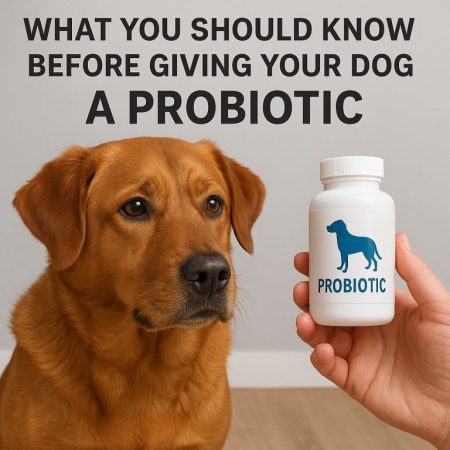One of the best ways to ensure you buy a healthy puppy is to seek professional recommendations. It could include a veterinarian, groomer, or dog trainer.
You can also find healthy puppies for sale from animal shelters and rescue organizations. These are dogs who have been abandoned through no fault of their own.
Look for a Reputable Breeder
Finding a dog that’s both healthy and has the personality you want can be difficult. While finding a puppy from a responsible breeder is the best way, some people may choose pet shops or private sellers. However, it would help if you always researched before selecting a seller or a breeder. Look for a reputable breeder with years of experience raising puppies with a health guarantee. A responsible breeder will provide access to the parents’ pedigrees to check for inbreeding.
If you’re seeking a loyal, calm family companion, the Mini Bernese Mountain Dog from breeders like Love Berners is a standout choice. Known for their affectionate and playful nature, these puppies are carefully DNA-tested and raised with socialization in mind—making them a trustworthy pick for healthy, lifelong companionship
You can search for puppies online by breed, age, location, and more using websites like Pawrade.com. You can enhance your search by applying additional filters or advanced search options. It will help you narrow your options and find the perfect puppy for your family.
When searching for a breeder, visit the facility or ask for an online video-conferencing session to observe where the puppies are raised. Look for a clean and odor-free space with plenty of room to exercise the dogs and where the dogs are socialized and well-fed. The breeder should be able to provide references from the owners of the dogs from previous litters, and they should ask you questions about your lifestyle and home environment before selling you a puppy.
A good breeder will be proud to show off their dogs and puppies. They will have pictures of them on their website and should be able to talk about the history of each of the puppies. They should also be able to explain any conditions that can affect the breed and answer your questions.
It should be a red flag if the breeder seems eager to sell the puppies or insists on a specific price. A responsible breeder will be more concerned with ensuring each puppy goes to a good home rather than getting the most money for their puppies. You can also check out a breeder’s reputation by talking with other dog lovers and asking for personal recommendations.
Visit the Breeder’s Home
A responsible breeder should always be willing to allow you to visit her home and introduce you to her litter. They may even be able to provide you with the names and locations of the sire and dam (if the litter results from one of them). A breeder will also ask you many seemingly invasive questions about your lifestyle, whether or not you have kids at home, and what sort of activities you plan to participate in with the puppy. It is not because the breeder is trying to judge you; it’s merely because they want to ensure that the puppies they sell will have a happy life.
When visiting the breeder’s home, look around for signs of neglect and poor care. It includes dirty or overcrowded conditions and unhealthy or unwell animals. If you see any of these, walk away and find another breeder.
It would help to learn more about the breeder’s contracts and guarantees. Reputable breeders will insist that you sign a contract stating specific responsibilities on your end, and they should also offer reasonable terms in case your puppy develops a genetic disorder.
Ask about the breeder’s history with her dogs. See how long she has been breeding them, and determine what health testing she does on her parents and the puppies. They should also have records of the vaccinations that the puppies have received. A reputable breeder will usually be there for her puppies after selling them. They will keep in touch with the owners and help them through any problems, if necessary.
Animal breeders should have a website to establish credibility and provide information to potential customers. It allows her to market the puppies and attract a broad audience. It is an excellent way to advertise and build a reputation as a responsible breeder. You can search for the type of puppy you want on websites and refine your results by location and price. When you click on a result, you should be able to view the full details of the puppy, including its microchip number and AKC registration status.
Ask Questions
When looking at puppies for sale, it’s vital to ask the breeder some key questions. These questions cover everything from the mother’s health to the puppies’ history. By asking the right questions, you can be sure you’re buying a healthy puppy that will thrive in your home.
The first thing you should ask is how old the pups are. A good breeder should be able to give you an age range for the puppies and won’t be selling any too young or old to have a happy life with you. Next, you should ask what health tests the puppies have had. The breeder should be able to provide you with a list of the breed-specific health checks they have had the puppies undergo and tell you which ones you need to get done to complete the full set of testing for your specific dog’s breed. It’s also a great idea to consult with a dog trainer early on, as they can help assess the puppy’s temperament and guide you on the best approach for training and socialization
You should also ask if the puppies have been microchipped and, if so, at what stage they were chipped. Tracking your dog’s movements is essential. It ensures their safe return if you can no longer care for them. Lastly, it would help if you asked about the puppies’ vaccination schedule and what stage each one was vaccinated at.
Another critical question is whether the dam (mother) will be available for viewing. It will give you a better idea of the puppies’ temperament, as well as their appearance and size. It’s also a great chance to see how the mother interacts with the breeder and her puppies.
If the dam isn’t available for viewing, it’s essential to find out why. The breeder may be unable to explain the reason, but it’s worth asking if the answer is suspicious.
If the reason is suspicious, don’t buy from the breeder. These situations often signal that the breeder is not responsible for their animals’ welfare- engaging in puppy farming activities.
Look at the Puppies’ Parents
A puppy’s health isn’t just genetic; it comes down to their upbringing. Responsible breeders often keep their puppies in their home or a nearby kennel facility and provide you with the parents’ pedigrees (their family trees). If a dog’s parents have hip dysplasia, cataracts, or other conditions, your new puppy will likely be affected, too. Responsible breeders will also ensure that their dogs do not suffer from common ailments like diabetes or heart disease, so ask to see these records, too.
Visiting the kennel where the puppies are raised is essential before making decisions. Even though puppies are messy, a well-bred litter should be clean and free from signs of stress. Ask the breeder if they can provide proof of veterinary visits, dewormings, and vaccinations.
Once you have looked at the puppies, look at their temperament and interaction with their mother and littermates. You want to choose a puppy to bond with you and be comfortable in your presence. Avoid taking the puppy that runs away or nips your hands and tail. Instead, take the one that quietly follows you and crawls into your lap.
If you have allergies, consider their severity before choosing a dog. Some owners can tolerate mild dander, while others will sneeze when the dog enters the room. In most cases, a hypoallergenic dog will be best for you.
If you cannot find a puppy at a breeder, many pet adoption agencies offer healthy puppies for adoption near you. The ASPCA website is an excellent place to start, allowing you to narrow your search by location, breed, age, behavior, and more. Once you have found a puppy that interests you, contact the shelter or owner for additional photos, information about the dog’s history and temperament, and whether it suits children. During your first visit to a breeder or pet shop, visit alone, not with the kids.






